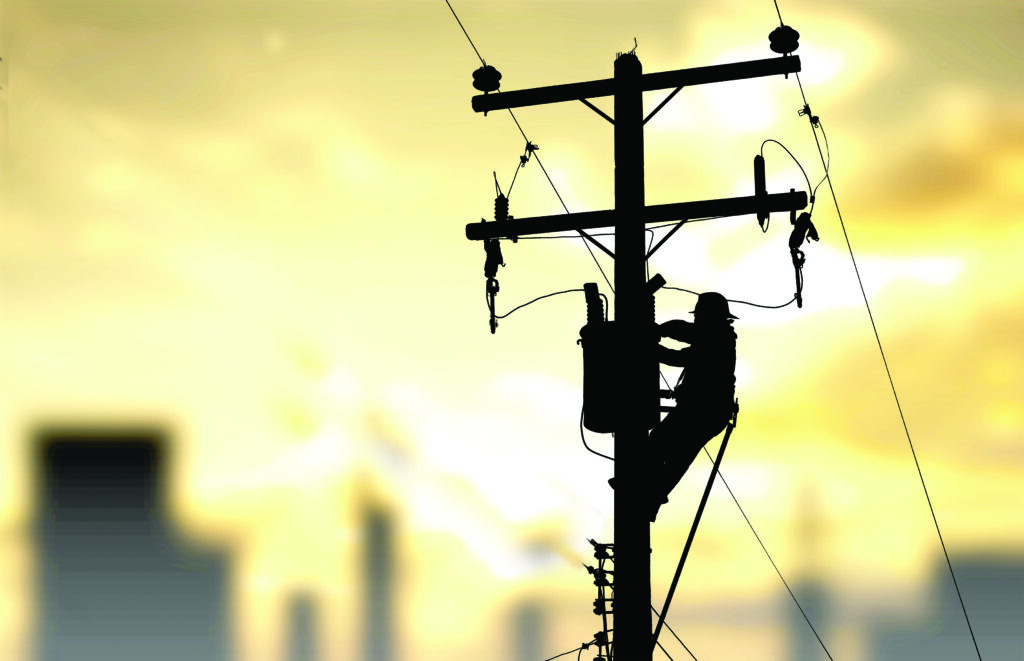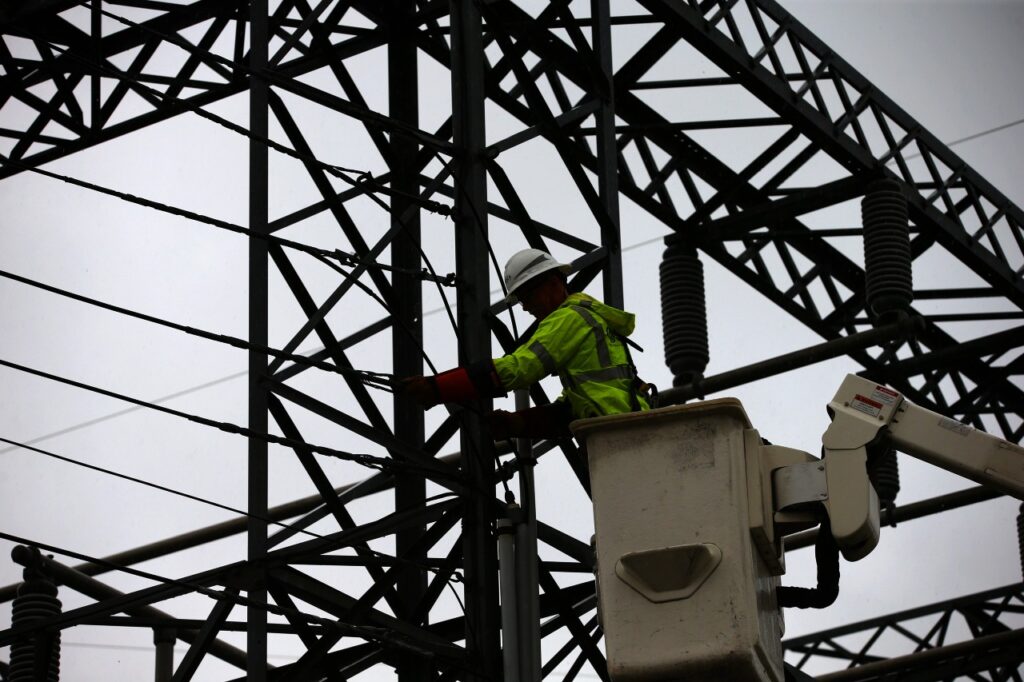Power Drain: Ocala Electric Utilities lineman shortage a broader issue

Ocala Electric Utilities has lost some of its linemen to higher-paying contractors. The issue is one facing public utilities nationwide. [Stock photo]
Within the past year, OEU has seen the departure of six journeymen, two apprentices, and five linemen trainees. Such losses have escalated staffing concerns not only in Ocala but also in many neighboring municipalities experiencing comparable shortages, including Kissimmee, Lakeland, Tallahassee and Orlando along with countless others nationwide.
OEU attributes a significant portion of its workforce dilemma to stiff competition from well-funded private contractors and investor-owned utilities that can offer highly attractive incentives, such as faster career and salary progression, guaranteed overtime pay amounting to nearly $33,000 annually and guaranteed workday per-diem pay that can add up to as much as $36,400 annually, tax-free.
The city is currently advertising for linemen with starting salaries between $73,500 – $87,844.
The current housing boom is fueling the exodus of lineman as construction of new developments around the country increases the demand for experienced workers, said Lanny Mathis, business manager for the International Brotherhood of Electrical Worker Local No. 1205.
The local, based in Gainesville, represents Ocala electric workers.
“Right now, there’s supply and demand driving it,” Mathis said. “New home construction, hurricane disaster repair, new infrastructure all this has put a high demand for linemen.”

Matt O’Cull of Ocala Electric Utility checks a control panel in a building for relays at the Eugene Dearmin substation in Ocala on Sept. 1. [Bruce Ackerman/Ocala Gazette]
Experts appear to agree that the lineman shortage is widespread and will continue to worsen unless utilities take aggressive measures to stop them. The 2020 U.S. Energy and Employment Report, supported broadly by major public power suppliers and the US Department of Energy, notes that 84% of energy employers surveyed have difficulty hiring qualified workers, that’s up 7% over the previous year.
A second report, Dark by 2050, compiled by Klein Tools and the Accelerant Group, projects that the United States will need an additional 224,000 electrical workers by 2030. It goes on to say that if current trends continue, Americans can expect “more frequent and longer-duration outages…lasting multiple days” and a possible “cascading effect on communications, water supply, transportation, and even the ability to gain fuel for backup generation.”
Despite the local staff shortages, Dobbs says, OEU still has the capability to respond to current customer needs effectively. She notes, however, that a storm event could impact response times, and that the city has alerted the Florida Municipal Electric Association (FMEA) to the potential need for “mutual assistance” from other municipalities.
Dobbs said the shortage has required the city to use contract linemen to fill in gaps. Those linemen are earning a higher pay rate than city workers, but Dobbs said when factoring in the benefits, overhead and equipment, the cost to the city is comparable. Still, city workers are being paid less than contractors for similar work.
Seeking solutions
Mathis said the good news is that most of those who would be swayed by the money have likely already left. Being a “construction” lineman is a more unpredictable existence.
“It’s a different way of living,” said Mathis, whose local also represents construction linemen.
He said the city has also stepped up recently by increasing electrical worker pay by 3% across the board.
OEU, with the support of city management and city council, has pledged to examine market standard salaries and benefits across other municipal electric utilities in the state with the assurance that adjustments will be made to remain competitive and increase employee retention.
The union also recently voted to accept a new three-year contract that would increase lineman pay by 6% in the first year and 3% for the two years after that. Other city union electrical workers would receive an annual 3% increase for three years.
Additionally, the city agreed to discuss a possible defined benefit program, similar to a pension plan, Mathis said.
Those discussions would start after six months of the contract passing. Now that the union has signed off on the contract, the city council must approve it.
Mathis said the promise of discussions should go a long way in keeping some linemen put for the time being.
“A lot of linemen are not satisfied with the benefit package at the city. They don’t feel like there is anything to keep them tied to the city,” he said.

Keith Green, a lineman with Ocala Electric Utility, is silhouetted as he works on power lines from a bucket truck in Ocala on Sept. 1. [Bruce Ackerman/Ocala Gazette]
Linework is labor-intense and hazardous, requiring highly-skilled individuals to work outdoors on overhead and underground electrical facilities—often on high-voltage, energized electrical power lines and equipment, according to Dobbs
It’s all done to help ensure uninterrupted service or to restore services to customers.
Linemen wear many hats, including maintaining existing and constructing new electrical lines as well as operating bucket trucks, derricks, trenchers, hydraulic tools, chain saws, and other tools and equipment—all the while keeping safety paramount. They’re also required to be available during emergencies and to stand by on a regular rotation.
To be considered for a lineman position requires a high school diploma or GED, successful completion of an apprentice program and a minimum of four years experience in overhead and underground transmission and distribution power systems construction and maintenance.
Coming back up to speed
On the upside, OEU recently hired six new employees and has posted openings for qualified linemen and linemen trainees, locally and throughout the state to fill the remaining seven open positions.
“We have an excellent training curriculum to get these employees ready for the lineworker apprentice program,” says Dobbs. “Our projected recruiting needs depend on OEU’s customer growth rate. OEU’s current recruiting needs will be met once we fill the seven positions currently posted.”
Still, Mathis said becoming a lineman takes years.
“A lineman can be five to 10 years in the making, by the time you get a quality, self-sufficient lineman. The ones that are leaving, they can’t be replaced easily,” Mathis said.





